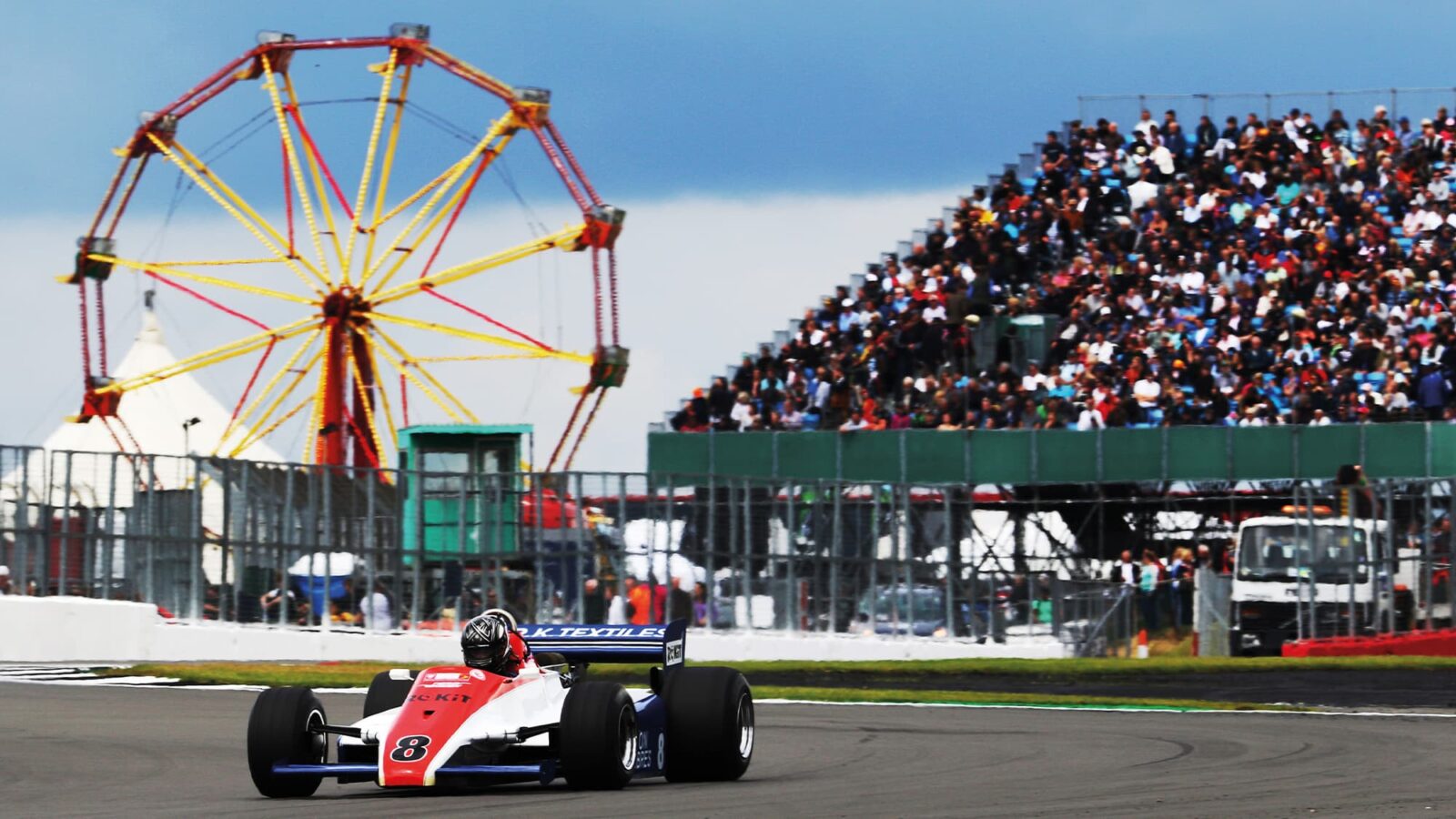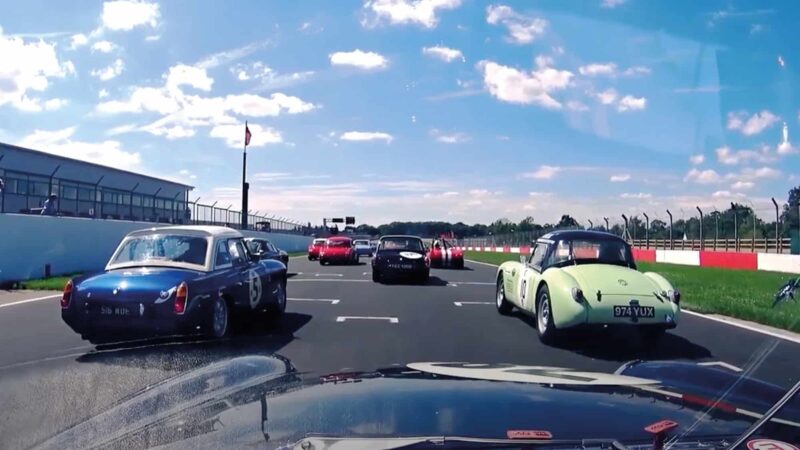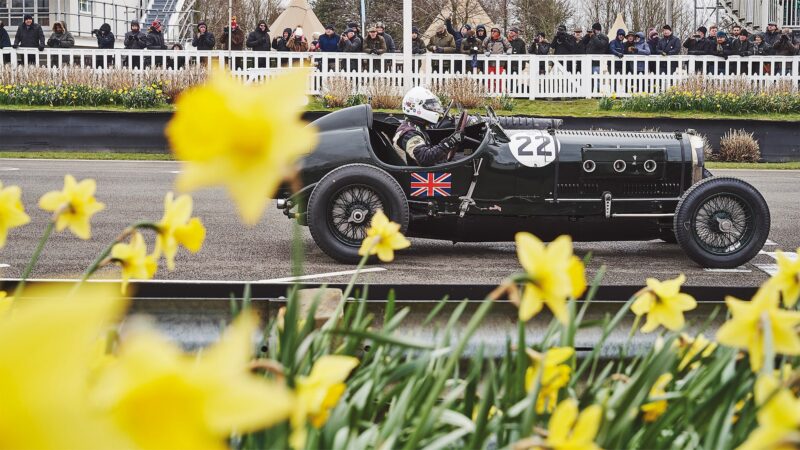Oldies back on track for a full season of historic racing in 2022
It’s been a tough two years for historics but despite problems with carnets, fuel costs and a pandemic, 2022 offers a full season of racing. There is a lot to look forward to, writes Paul Lawrence

The Classic at Silverstone is well-attended and there’s more than track action to keep your entourage happy
Covid, carnets and now fuel costs have all made the logistics of going historic racing more challenging. But this branch of the sport is proving to be very resilient. Back in 2020, when Covid first struck, everything went into lockdown and there was no racing in the UK until early July. Nearly half the season was lost and some of the racing that did happen was behind closed doors with the public not admitted.
Events like the Goodwood Members’ Meeting and the Donington Historic Festival didn’t run, while the Silverstone Classic was dropped for a year, as running without thousands of spectators was not financially viable given the investment involved in such a large-scale event.
However, there was historic racing in the summer and autumn of 2020 and many competitors were keen to race, even if it was just a limited domestic programme of three or four UK events in what remained of the season.
Meanwhile, race teams were kept busy with restoration projects and rebuilds rather than running cars at race weekends, and most reported a brisk business in longer-term projects that took them through the dark days of coronavirus.

Equipe Classic gives a taste of gentleman racing in the 1950s and ’60s
John Danby of John Danby Racing prepares cars ranging from Super Touring Cars and Historic F1 cars to Lotus Cortinas and has up to 40 race machines under the team’s wing. During lockdown, the focus of work moved from race weekend preparation to restorations and rebuilds as owners spent money on improving their cars rather than racing them. Danby is upbeat about the current situation. “We’ve got loads going on this year,” he says.
Some of those who prepare their own cars used lockdown to good effect and a number of fresh cars coming into racing in the last 18 months were projects from the period. Drivers like recent Historic Formula Ford 2000 convert Ollie Roberts says that the break spurred him on to get back to racing after a 15-year sabbatical.
“It’s still hard work to get into Europe and it can be a hurdle for some drivers”
By early 2021, things were looking brighter as life returned towards normal and the historic racing season started in early April, albeit initially behind closed doors. Events like the Donington Masters Festival at Easter and the Donington Historic Festival three weeks later ran without spectators, but by the end of May the supporters were back and the Masters Festival at Brands Hatch was marked by a bumper crowd. The retitled The Classic: Silverstone went ahead as planned in July, and Goodwood events were back on track.
What was notable across both the 2020 and 2021 seasons was the general lack of cross-channel traffic for historic racing. Events like the Le Mans Classic and Monaco Historique were casualties in 2020 but Monaco ran again in 2021, although with only modest entries.
While the deterrent of Covid gradually ebbed away, the issue of the Brexit-induced carnet did not. The requirement for extensive documentation before taking cars and equipment to the continent to race has become a major factor for many competitors. The leading professional teams have generally overcome the challenge, but for many weekend racers the effort and cost involved is another reason not to travel beyond these shores.
“It is still hard work to get into Europe and it can be a hurdle for some drivers, particularly if they only want to do one or two events in Europe,” says Danby. “If they go regularly, the carnet costs can be spread out and are not so bad.”
The same seems to apply to European racers looking to bring their cars to the UK for a weekend and stories of excessive cost and administration deterring people are becoming common. A further factor in the carnet issue is that in some countries the cost of the temporary carnet is linked to the value of the car.

Goodwood was missed during the pandemic
On top of Covid and carnets, the rising cost of fuel as a result of the situation in Ukraine has more recently become an issue. Whether this will become a permanent situation and a further deterrent for long-haul travel remains to be seen but there is no doubt that for those drivers racing on a modest budget any additional fuel cost will just be another unwelcome burden.
Despite the obvious challenges, historic racing has emerged from the last two years strong and buoyant and is ever changing as new series, new cars and even new promoters come into the arena. Of the British-based promoters, Masters Historic Racing and Motor Racing Legends have extended both their series portfolios and the proportion of events in their calendars.
Masters has added the Endurance Legends series, which caters for sports prototypes and GT cars as little as five years old and the series is gaining widespread support. Motor Racing Legends, meanwhile, has added the rather elite Amon Cup for Ford GT40s and the Pall Mall Cup for pre-1966 GT and pre-1963 racing sports cars – a menagerie of Cobras, E-types and MGBs. That puts it up against the established GT
and Sports Car Cup and Masters Gentleman Drivers, but all three series seem to be faring very well.
Rachel Bailey from Masters says: “Travel is now almost back to normal but carnets are an issue, particularly for drivers who do one or two European races each year with their own cars. The bigger teams that go regularly are OK. We’re also finding that European teams don’t want to come to the UK for one-off races.”
The UK-based Historic Sports Car Club continues to provide its own mix of racing for single-seaters, sports cars and touring cars and has added a 1950s drum-braked sports car series to honour club founders Guy Griffiths and Betty Haig. The initial response has been good. CEO Andy Dee-Crowne says: “There seems to be a diminished interest in going abroad to race. That could be due to Covid, carnet or cost, or any combination of them.”
New kid on the block is Equipe Classic Racing, which is steadily building its portfolio of largely pre-1966 racing with under 3-litre GT cars at the heart of the movement. By running its own race meetings in conjunction with MotorSport Vision Racing, ECR is becoming a significant player in the market.
What is certain is that there is going to be plenty of excellent historic racing this season in the first full year since 2019. We spotlight just some of the leading events coming up in these pages.
